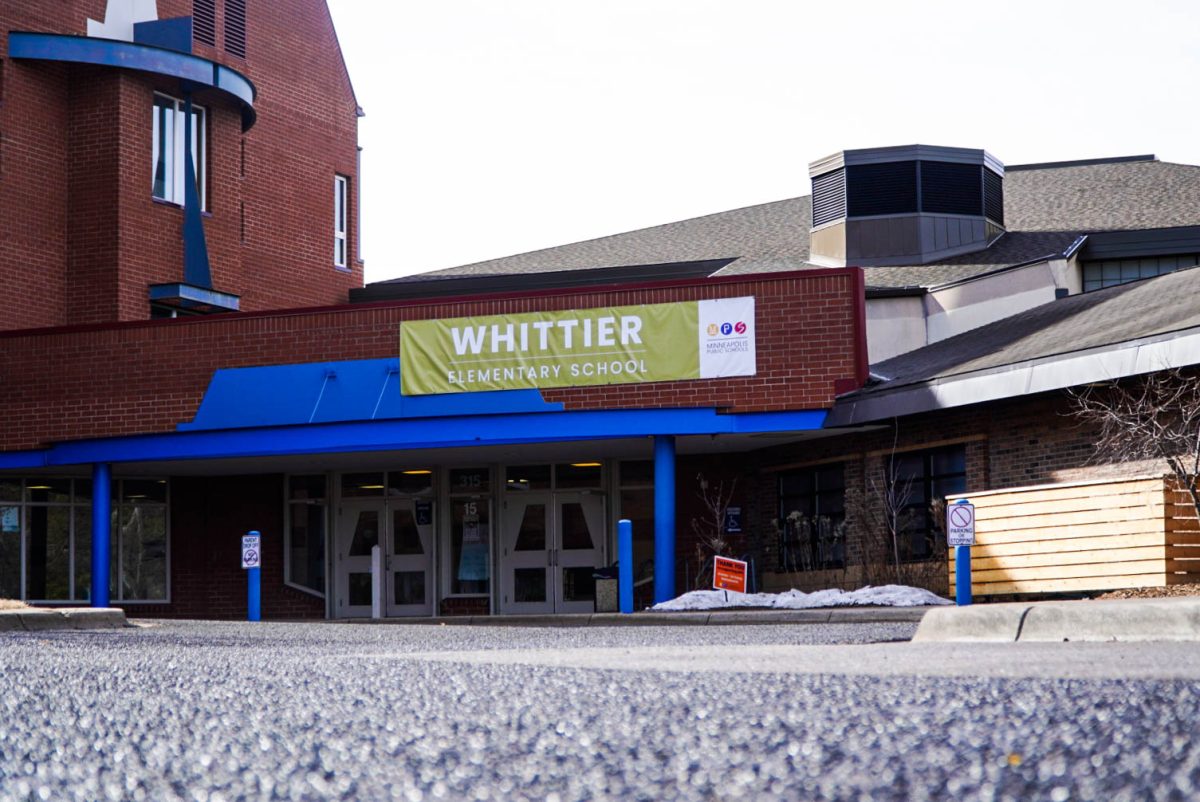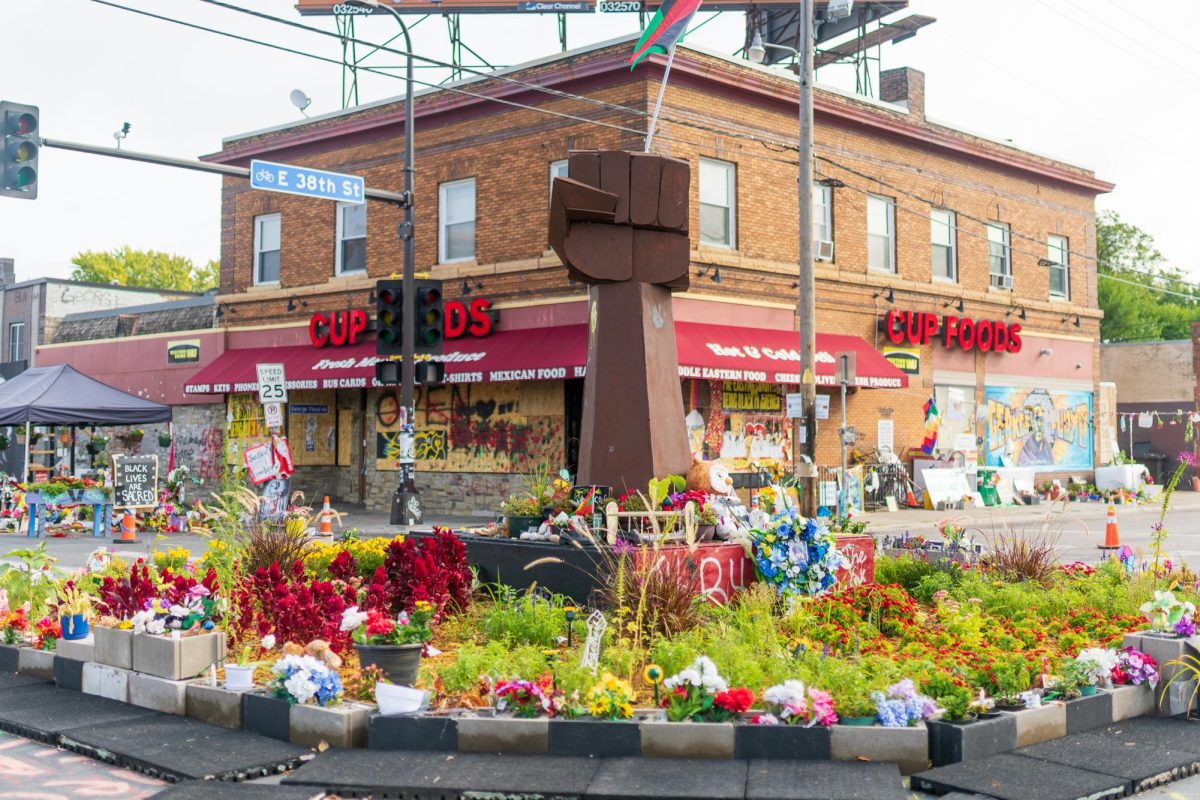Minneapolis was named a Child Friendly City by UNICEF USA in February, joining Houston as the second U.S. city to do so and honoring four years of work done by the city to promote its youth.
Minneapolis partnered with UNICEF USA’s Child Friendly Cities Initiative (CFCI) in 2020, in an effort to evaluate and improve how the city provides a platform for young voices, according to the city’s Deputy Commissioner of Health Heidi Ritchie.
Ann DeGroot, the executive director of the Minneapolis Youth Coordinating Board, said having a tangible commendation for the city community’s hard work is encouraging.
“We are designated by an international organization as this group that’s going to work with other cities around the world really to make sure that we are youth and child-centered,” DeGroot said. “It’s very exciting.”
The Minneapolis Youth Coordinating Board oversees the Minneapolis Youth Congress (MYC), a governing organization of Minneapolis youth ages 13-19 that works with the city government on policies affecting young people. Their slogan is “No Decision About Us Without Us,” and MYC allows kids to advocate for themselves as representatives of the city’s youth.
Since 2020, CFCI and the city have worked together to solidify Minneapolis as a city prioritizing the needs and voices of its children and young adults.
Krista Becker, the CFCI program lead and manager of municipal engagement, said in a statement to the Minnesota Daily that the program intends to empower cities to implement a “child rights-focused framework.”
“[CFCI] aims to improve the safety and inclusion of children and young people, their meaningful participation and access to equitable social services, living environments, play and leisure opportunities,” Becker said in the statement.
DeGroot said they worked with CFCI to strengthen youth-centered programs like the Youth Congress and Parks and Recreation Board.
“This was a way to say, ‘How can we take all of those things, bring them together under one name, and amplify them and expand them and improve them so that we can all work together in a more productive way?’’’ DeGroot said.
One of CFCI’s qualifying steps is for cities to create and implement a one-year local action plan outlining how a given city will implement youth-centered legislation and practices, according to Becker.
As a long-time advocate for Minneapolis youth, DeGroot said providing space for and taking consideration of young voices is imperative to strengthening the fabric of the city.
“It just makes [the city] stronger and it’s a thread that can go through everything in the city,” DeGroot said. “When you’re thinking about improving a city for a 15-year-old, it improves the city for somebody my age, close to 70. It makes the city better for everybody.”
Working with organizations like Reach Out and Read Minnesota and the Urban Scholars Program, the Minneapolis Health Department and the Minneapolis Youth Coordinating Board helped create a local action plan that prioritizes emergency management, youth voices in decision-making, community safety and child rights education.
According to Ritchie, the 2019 Francis Drake Hotel fire, the COVID-19 pandemic and the murder of George Floyd in 2020 were watershed events that disproportionately impacted Minneapolis youth and highlighted the lack of emergency management protocol accounting for youth needs.
As a result, the city’s CFCI local action plan now considers the varying needs of children of disabled, minority and other vulnerable backgrounds as a priority in its emergency management and preparedness planning.
Ritchie said when a city ignores the needs and voices of its youth in governance, it wastes money and resources on ineffective policies and programs.
“After all that we’ve gone through over the last few years and especially in Minneapolis and especially for youth that are BIPOC, we do not know what it’s like for them to be young in this day and age,” Ritchie said. “We have to incorporate their voice or we are going to be designing programs, policies and even in the way that we engage with youth [are] going to be a miss.”
In 2020, the city worked with Reach Out and Read Minnesota, a nonprofit organization that is partnered with almost 300 Minnesota medical providers to provide free books and literacy guidance to families at yearly health checkups until a child turns five.
Together with a couple of the city’s pediatric clinics, the nonprofit provided copies of Alain Serres’ book “I Have the Right to Be a Child” to every child who turned five in the program, according to Reach Out and Read Minnesota Executive Director Kris Hoplin.
Hoplin said she hopes Minneapolis’ Child Friendly City status will grow Reach Out and Read’s initiative to promote reading and literacy to children across the state through more health care providers.
“The initiative [is] kind of a snapshot in time, where we’re starting, but we obviously want to keep expanding and keep having this sort of snowball into something even bigger and bigger, and so we’re really hopeful,” Hoplin said. “We have many more clinics in Minneapolis that are not doing this and don’t have these books.”
Becker said in her statement that CFCI’s goal of centering the needs of children helps ensure equity and fairness across all demographics of a city’s community.
“By putting kids first, it helps make sure everyone gets treated fairly. It encourages the community to get involved in decisions about things like schools and parks, making everyone feel more connected,” Becker said in her statement.
Ritchie said being declared a Child Friendly City by UNICEF was an exceptionally proud moment for the network of people who made it possible, showing the dedication the city is making to its youth and ultimately its future.
“[The designation] signifies the commitment that we’re making in the long term to the future of our city and recognizing that children are that future,” Ritchie said. “The only way to engage them is by authentically including them at the table.”














